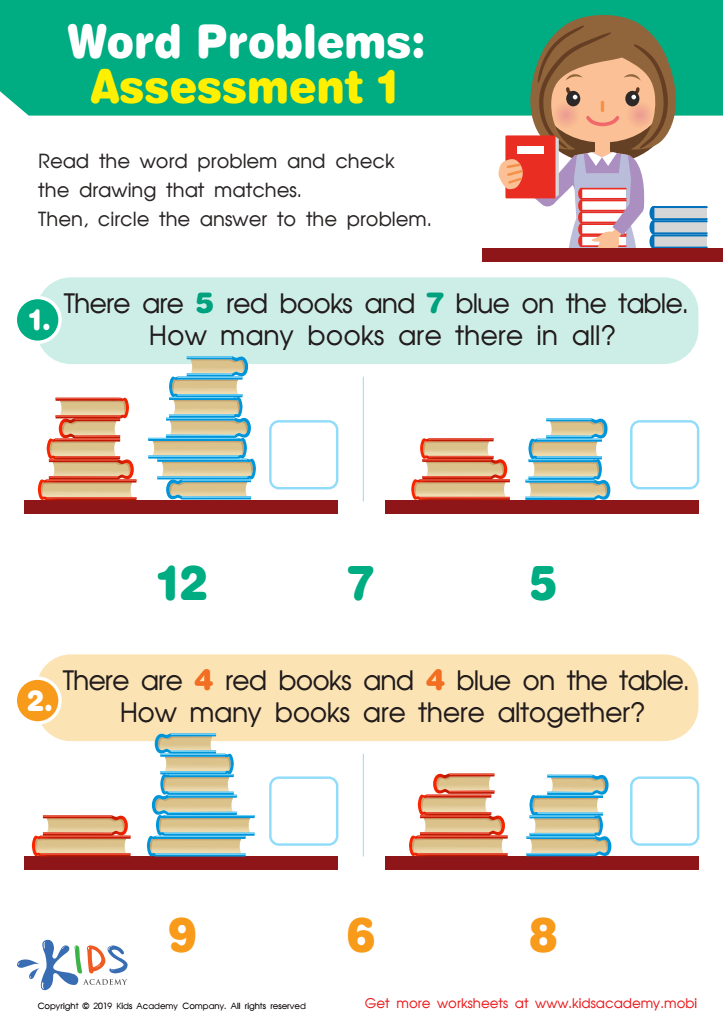Logical Reasoning Word Problems Worksheets for Ages 3-5
5 filtered results
-
From - To
Dive into our engaging Logical Reasoning Word Problems Worksheets designed for ages 3-5. These interactive worksheets foster critical thinking and problem-solving skills in preschoolers through fun activities and vibrant illustrations. Each worksheet presents age-appropriate word problems that require children to use logical reasoning to find solutions, enhancing their early math skills. Perfect for parents and educators, our resources help young learners develop essential cognitive abilities while keeping them entertained. Boost your child's confidence and proficiency in math with our meticulously crafted worksheets. Start their journey towards logical thinking today! Find them on Kids Academy for a fun learning experience.


Enrichment -2 Step Word Problems Worksheet


Word Problems: Assessment 1 Worksheet


Solve the Problem: Trick–or–treating Worksheet


Word Problems: Assessment 2 Worksheet


Addition and Subtraction: Word Problems Worksheet
Caring about logical reasoning word problems for children aged 3-5 is crucial for laying a strong foundation for their cognitive development. During these formative years, young minds are highly impressionable and absorb information like sponges. Introducing logical reasoning word problems early on fosters critical thinking, problem-solving skills, and cognitive flexibility.
Children at this age start to understand relationships, patterns, and sequences, all of which are crucial concepts in mathematical thinking and everyday decision-making. By engaging with logical reasoning word problems, young learners develop the ability to think in a structured manner, understand cause and effect, and enhance their analytical thinking.
Moreover, these activities can boost language development. When children are prompted to explain their reasoning or describe their thought process, their vocabulary and communication skills improve. This dual focus on logic and language sets the stage for future academic success in all subjects, as the ability to reason, analyze, and articulate processes is key to understanding complex concepts.
Finally, structured and supportive engagement with logical reasoning problems can also foster a growth mindset in young children. By encouraging persistence and resilience as they solve these problems, parents and teachers can instill a positive attitude towards challenges, which is beneficial throughout life.
 Assign to My Students
Assign to My Students





















